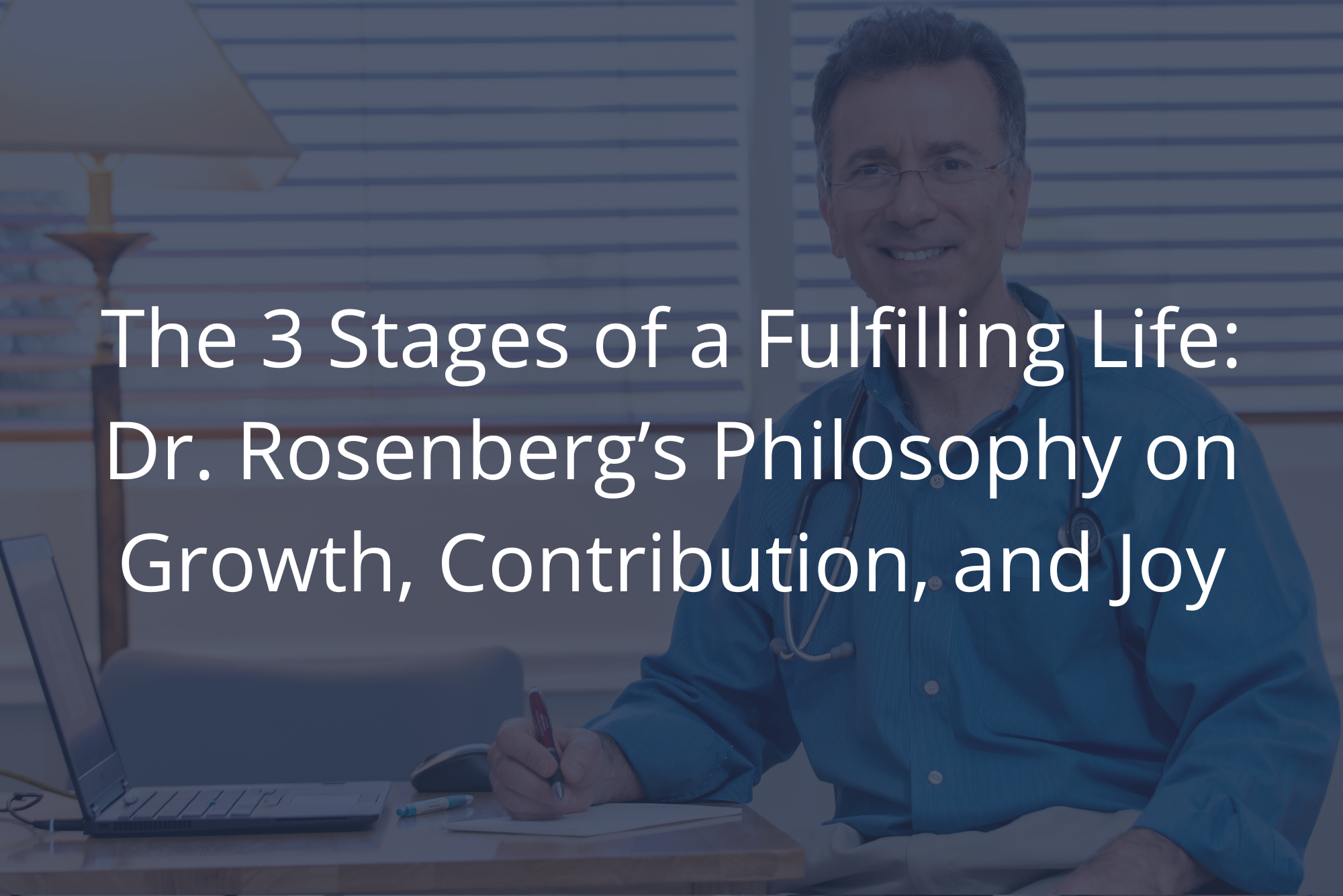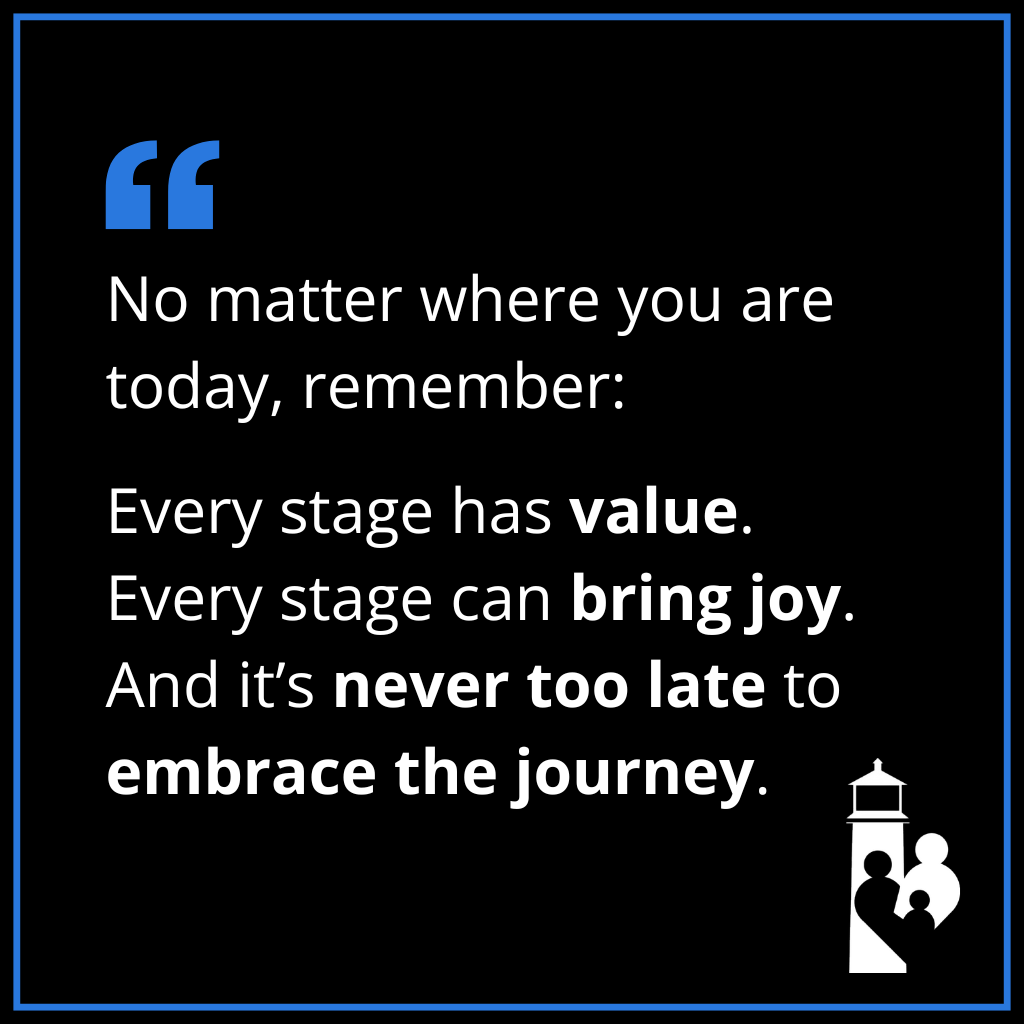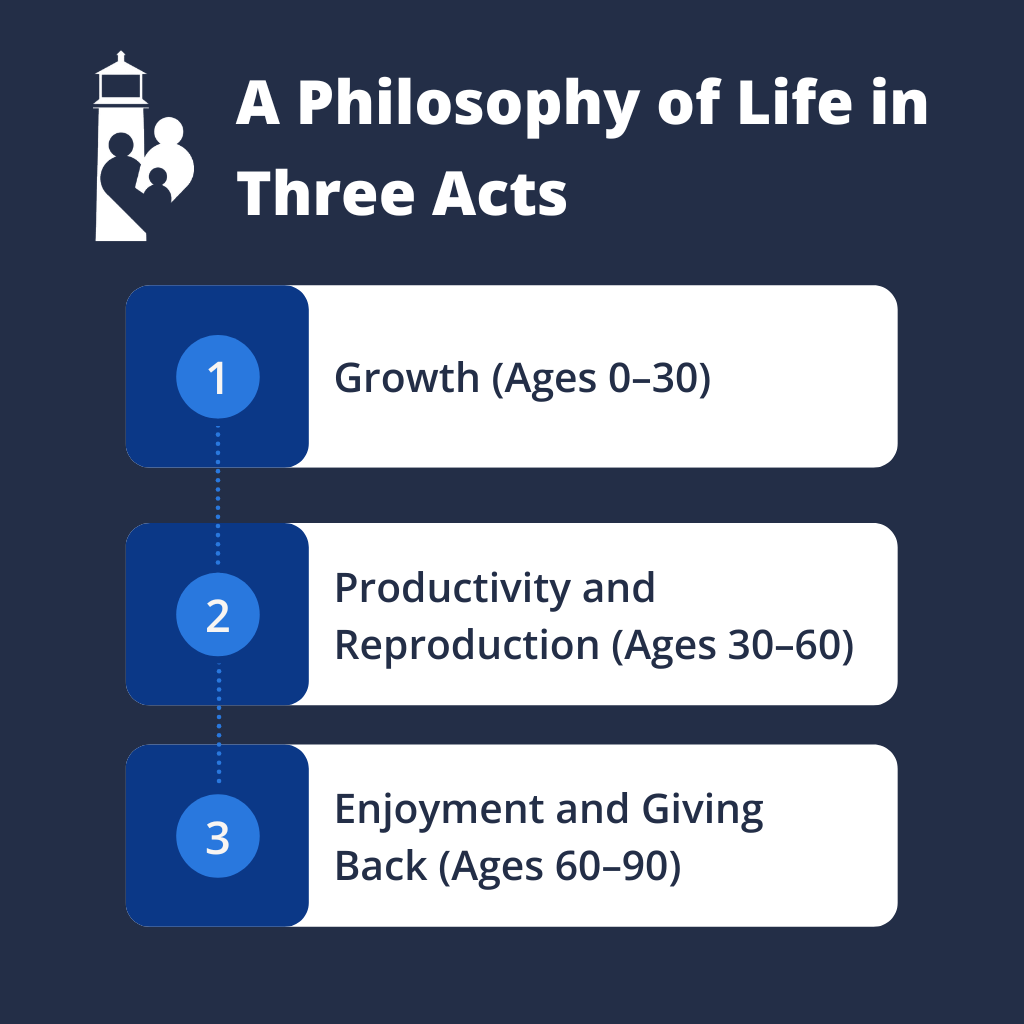
A patient recently shared a fascinating realization with me: Every 10 years, he noticed he’d made a significant life transition.
At 30, he ventured into the high-tech world. At 40, he moved across the country. And at 50 — his most recent birthday — he realized he desired a change in his profession but enjoyed the company he was working for, so he changed careers within his company.
This pattern of reinvention aligns with a philosophy of life I’ve developed over my years in practice, a view of life’s stages that I sometimes find helpful when counseling patients on their wellness journey.
A Philosophy of Life in Three Acts
The current average life expectancy for men in the U.S. falls somewhere in the mid-70s, and for women, the low 80s. Consequently, if we’re fortunate enough to live to 90, we’ll have enjoyed a long and full life.
With those potential 90 years as an optimistic goal, we can divide life into three 30-year segments. The accompanying philosophy of life can help frame our expectations and considerations at each stage.
Stage 1: Growth (Ages 0–30)
The first third of our lives consists of growth in multiple dimensions:
- We grow physically through nourishment.
- We grow mentally through education.
- We develop socially through communication skills, friendships, and other relationships.
Our parents begin as our biggest influence. Then our focus shifts to peers, and later to colleagues and those with whom we share common interests. All this contributes to our growth as healthy human beings and contributing members of society.
This stage can sometimes accelerate — perhaps by up to 10 years — for those who enter the workforce directly after high school. People pursuing advanced degrees, however, will likely persist in this stage until close to age 30.
Stage 2: Productivity and Reproduction (Ages 30–60)
During the middle third of life, we become productive in society and discover our unique roles. Many, though not all, start families during this time.
The key element of this stage is contribution — learning what we have to offer society while also supporting ourselves. We learn our place in the world and how we contribute to it.
This productivity, however, doesn’t mean we always feel successful. Current data shows that the average person changes careers at least four times in their life, and we know the divorce rate approaches 50%. Clearly, this stage has its challenges.
I find John C. Maxwell’s concept of “failing forward” particularly helpful here. We all have experiences that feel like failure in our lives, especially during this middle stage. However, when we stop to ask ourselves, “What have I done, and what can I learn from this?” our setbacks can become stepping stones into the future.
Those without children experience another challenge during this stage; they need another mode of developing a sense of legacy and contribution to the community. Fortunately, many such contributions provide a deeply fulfilling alternative path for making a lasting impact.
Stage 3: Enjoyment and Giving Back (Ages 60–90)
I define retirement not as “not working” but as not needing to work to primarily generate income.
The enjoyment we experience during retirement largely depends on the hobbies and interests we’ve accumulated throughout our lives. Activities we spend time developing in our younger years follow us into our later years, bringing engagement and enjoyment along with them.
The other half of this stage is giving back, whether that’s through helping raise grandchildren, mentoring younger people, or volunteering our time to help others. These activities allow us to enjoy the fruits of our labor while providing fulfillment and a positive example for younger generations.
Patients sometimes joke with me that their “golden years” are spent entirely in doctors’ offices — which doesn’t seem so “golden”!
I have to agree. Our last third of life should be enjoyable, not cooped up in medical facilities, but much depends on the groundwork we lay during the first two-thirds of life.
A significant secondary advantage to staying engaged in both hobbies and giving back is that it minimizes chronic illness. People who remain mentally active experience fewer neurodegenerative problems. Those who maintain physical activity face fewer cardiovascular issues. Chronic conditions often appear either later or with less severity, if at all, allowing for more freedom and enjoyment in the golden years of life.
Philosophy of Life in Stages: The Journey Matters Most
Of course, not everyone will live to 90, and not everyone who does so will be in good health. Medical conditions aren’t always within our control, and we don’t always start planning for those golden years until much of the middle stage has passed us by.
The above outline is the ideal — what I hope for all of us, if possible. But even when significant physical challenges arise — cancer, stroke, heart disease, other limiting conditions — we can all find meaning in each stage by focusing on the journey itself.
It’s not what we accumulate in life, but the experiences we have as we pass through it that hold the most value.
When we embrace this philosophy of life at each stage — early, middle, and late — the journey itself can bring us the greatest enjoyment, even if we can’t participate in all the activities we’d like.
No matter where you are today, remember: Every stage has value. Every stage can bring joy. And it’s never too late to embrace the journey.


Dr. David Rosenberg
Dr. Rosenberg is a board-certified Family Physician. He received his medical degree from the University of Miami in 1988 and completed his residency in Family Medicine at The Washington Hospital in Washington, Pennsylvania in 1991. After practicing Emergency Medicine at Palm Beach Gardens Medical Center for two years, he started private practice in Jupiter, in 1993. He is an avid baseball fan and Beatles fanatic, since he was 8 years old. He has been married to his wife, Mary, since 1985 and has three grown children.
David completed additional studies at Mercer University, Macon, Georgia and obtained a BS in Chemistry in 1983.
“My interests include tennis, snow skiing, Pilates and self-development.”

